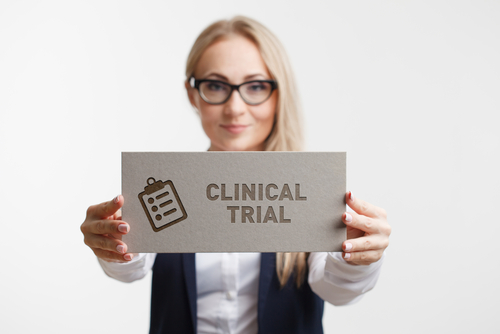Treatment with CS1001, an investigational immunotherapy, shows promising anti-tumor activity against relapsed or refractory extranodal natural killer (NK)/T-cell lymphoma (ENKTL) a rare and aggressive type of non-Hodgkin’s lymphoma, early Phase 2 trial data show.
To date, 40.9% of treated patients responded to CS1001 after a median follow-up of more than five months, with 31.8% achieving a complete remission of lymphoma.
These preliminary study results were presented at the 2019 American Society of Hematology (ASH) Annual Meeting & Exposition in Orlando, Florida.
Data were detailed in a poster titled “Preliminary Results from a Multicenter, Single-Arm, Phase 2 Study of CS1001, an Anti-Programmed Death-Ligand 1 (PD-L1) Human Monoclonal Antibody (mAb), in Patients (pts) with Relapsed or Refractory Extranodal Natural Killer/T Cell Lymphoma (rr-ENKTL).”
CS1001 is an investigational fully human antibody directed against the PD-L1 protein, and the lead product under development by CStone Pharmaceuticals, based in China.
The experimental treatment belongs to a class of cancer therapies called immune checkpoint inhibitors, which work by blocking certain proteins that act as ‘brakes’ for immune attacks against cancer cells. CS1001 was designed to bind to and block PD-L1, allowing specific immune cells to kill tumor cells.
Because it is a fully human antibody, CS1001 mirrors natural human antibodies, also known as immunoglobulins. This can reduce the risk of harmful immune side effects associated with biologic therapies, and be safer for patients.
In Phase 1 studies conducted in China, CS1001 showed good tolerability and promising anti-tumor activity in several tumor types.
Other trials are underway, including a Phase 2 open-label study called CS1001-201 (NCT03595657) that is evaluating CS1001 in adults with ENKTL who were previously treated with one or more lines of therapy. The trial is running in China, which has a high incidence of this type of cancer.
All enrolled are being treated with CS1001 at 1200 mg, given by injections into the vein (intravenously) every three weeks for two years or until disease progression or intolerance.
At the time of data cut-off (June 2019), 29 people were enrolled in the study, with a median age of 44. Most had advanced disease (75.9% with stage IV cancer).
They had been given CS1001 for a median of almost three months (11.7 weeks), and were followed for a median of 5.6 months after treatment initiation.
Of the 22 patients qualifying for efficacy analyses, 40.9% (9 people) responded to treatment, with a partial or complete reduction in tumor burden as assessed by the investigators.
Seven patients (31.8%) achieved full remission, meaning they had no detectable signs of lymphoma, which reflects a “high complete response,” according to researchers. By the time of the data cut-off, all these patients were still in remission.
Two people (9.1%) experienced a partial reduction in tumor size. One other patient also reached a partial response, but only after a period of pseudoprogression (a radiologic tumor progression from the treatment start that is not confirmed on subsequent radiologic assessments).
So far, the trial also shows patient responses to CS1001 are durable, lasting for up to 8.6 months. A radiologically assessed response rate was not yet available.
CS1001 “was generally well-tolerated” and safe, the researchers noted. Fifteen patients remained on treatment and 14 had stopped (12 due to progressive disease, two due to side effects).
Most patients (86.2%) experienced treatment-related adverse events, the most common being fever (20.7% of patients), elevated blood thyroid stimulating hormone (13.8%), low white blood cell counts (13.8%), and rash (10.3%).
Since the data’s cut-off, two other patients have reached complete remission for a complete response rate of 36%. Further updates on the trial’s results will be shared at the ASH conference, CStone announced in a press release.
“The preliminary safety and efficacy profile of CS1001 support further exploration and development of CS1001 in [relapsed or refractory] ENKTL” patients, the researchers concluded.
ENKTL is an aggressive type of lymphoma, involving immune T and NK cells. There is no effective treatment for patients who responded poorly to chemotherapy. Its incidence is highest in Asia, compared to North America and Europe.
“In China, ENKTL accounts for approximately 6% of all lymphoma incidences, and those relapsed or refractory patients in particular have urgent unmet clinical needs. CS1001-201 is the first clinical trial worldwide investigating an anti-PD-L1 antibody in ENKTL patients, and promising initial antitumor activity has already been observed in the trial,” Frank Jiang, CStone’s chairman and CEO, said in the release.


